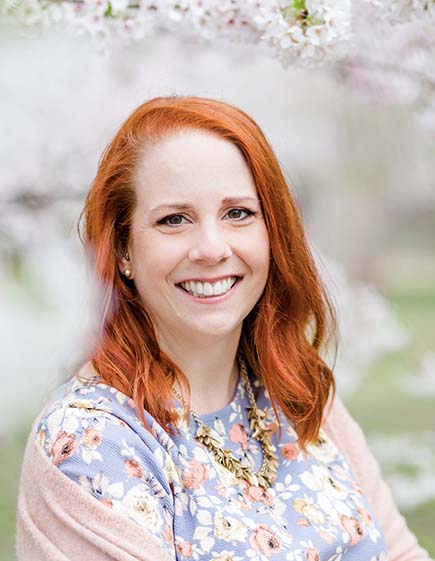
Dr. Ashley Landers is an assistant professor in the Human Development and Family Science Program’s Couple and Family Therapy specialization in the Department of Human Sciences at Ohio State University. She is an American Association for Marriage and Family Therapy (AAMFT) Clinical Fellow and Approved Supervisor. Her research focuses on families in child welfare, more specifically marginalized underserved minority families such as American Indian families involved with the child welfare system. Dr. Landers has published over 25 articles on family separation, child welfare, and reunification, as well as presented at over 25 local, national, and international conferences.
Dr. Landers is an AAMFT alumna who was a 2014-2015 doctoral fellow and a 2015-2016 dissertation fellow. She received her B.A. in psychology in 2005 and her M.S. in marriage and family therapy in 2007 from St. Cloud State University and her Ph.D. in family science from the University of Minnesota in 2016.
Dr. Landers was initially drawn to the MFP because the program’s mission to support underserved communities aligned with her personal interests. She shared, “The MFP supported my deep commitment and interest in serving underserved minority families that intersect with the child welfare system, more specifically Indigenous children, parents, families, and communities.”
Dr. Landers initially envisioned herself in direct clinical work. She shared, “I was trained as a marriage and family therapist clinician, but my passion for research was fostered during my doctoral training and my participation in the MFP. It was then that my research training and skills were developed and my interests in secondary data analysis blossomed and gave me the opportunity to work with underserved minority populations.”
Participating in the MFP provided Dr. Landers opportunities to build and nurture her professional network. She explained, “Joining the MFP afforded me the ability to network with other like-minded individuals. Through this
community, I was able to generate research collaborations with other scholars who were interested in advancing minority research.”
When reflecting on how she was able to leverage the skills and knowledge acquired in the MFP, Dr. Landers shared “The knowledge and skills that I acquired during my time in the MFP prepared me well for a career in academia. It contributed to the refinement and advancement of my research agenda and methodological skills. The MFP laid the foundation for my career path as a researcher, teacher, and clinician in the field of couple and family therapy.”
The MFP mentorship was vital to Dr. Landers’ educational and career development. She stated, “When I joined the MFP, I joined a group of other couple and family therapists who were equally committed to addressing issues of social justice. Being part of the professional network of minority fellows across the country afforded me the opportunity to share ideas with others, participate in research teams, come together with other scholars for presentations, etc.”
When asked what career advice she had for MFP fellows, Dr. Landers said, “Get connected! As a marriage and family therapist, I recognize that relationships are critical. No one builds their career in isolation. Paving your career path can be challenging. Ask others to share their experiences. Learn from others. Find someone a few steps ahead of you in their career, ideally someone in the type of position that you want to be in and reach out. Utilize your professional network.”
For anyone considering applying to the MFP, Dr. Landers says, "Do it! Applying to the MFP was life changing. It afforded me educational opportunities along with professional development. It opened doors for me. As a result, I was better prepared as a community-engaged scholar, researcher, and clinician. It was truly a wonderful and invaluable experience for me!”
Dr. Landers went on to say, “AAMFT's MFP fosters a dedication to expanding the delivery of culturally competent mental health and substance abuse services. AAMFT is committed to increasing the volume of culturally competent marriage and family therapists who are well equipped to serve underserved minority populations by providing quality training and professional development to fellows. I am so grateful for my years in the MFP.”